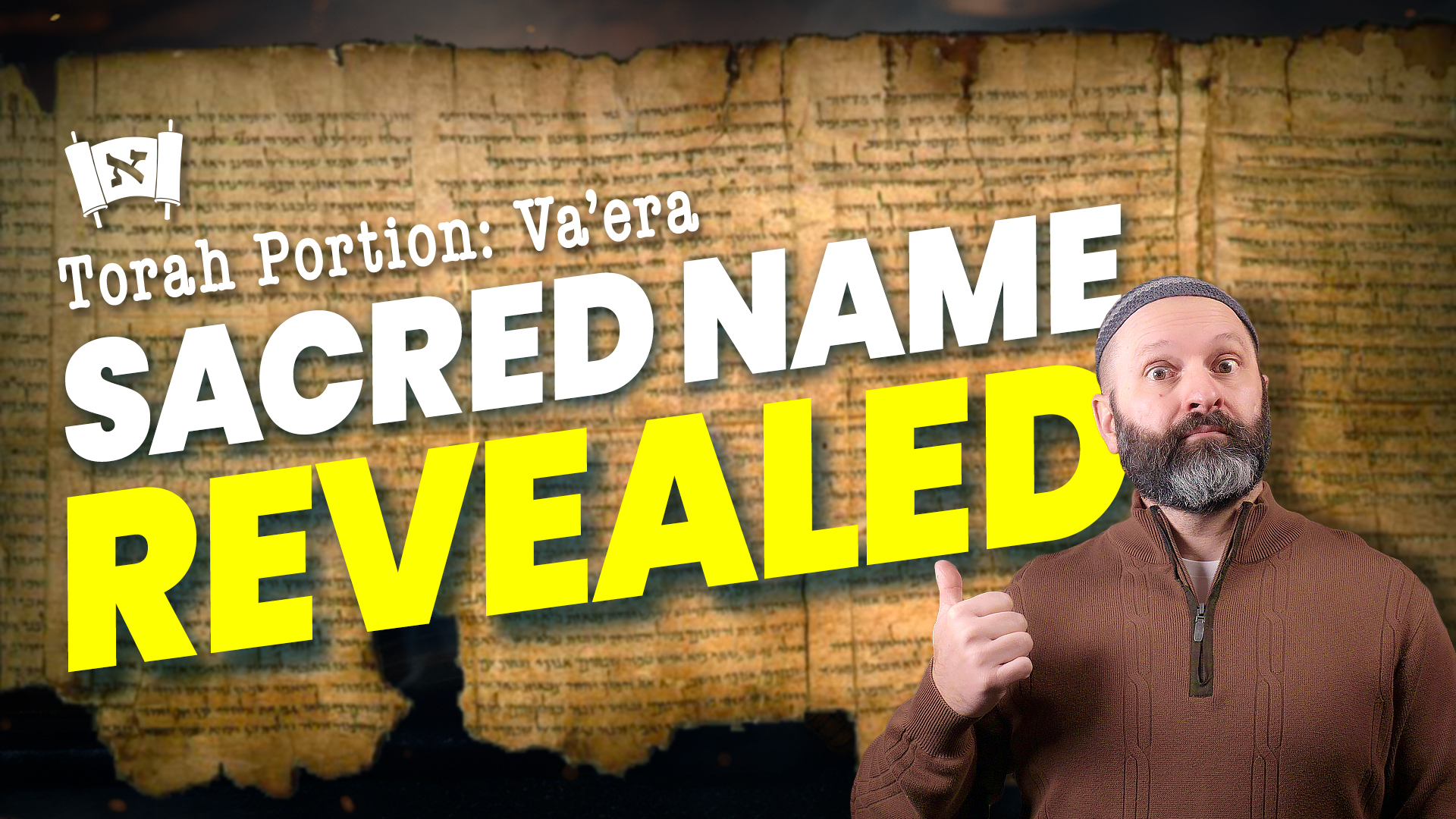The Sacred Name Revealed
Series:

Parashat Va'era (Exodus 6:2-9:35)
If we are paying close attention, we will realize that this week’s portion begins with a rather odd statement that begs for clarification. At first, the opening words of our portion seem contradictory to the basic storyline of what we have learned about God’s relationship with both the patriarchs and with Moses up to this point. Let’s take a careful look at the opening words of our parashah:
God spoke to Moses and said to him, “I am the LORD. I appeared to Abraham, to Isaac, and to Jacob, as God Almighty, but by my name the LORD I did not make myself known to them. (Exodus 6:2-3)
God begins by telling Moses, “I am the LORD.” Our English translations use the word “LORD" (usually all uppercase) to represent the sacred name of God. In Hebrew, this is spelled with the letters yod, heh, vav, and heh (Y-H-V-H). This is the name that God commanded Moses to tell the Children of Israel: “Say this to the people of Israel: ‘The LORD, the God of your fathers, the God of Abraham, the God of Isaac, and the God of Jacob, has sent me to you” (Exodus 3:15). We often refer to this name as “Hashem,” which simply means, “The Name.”
Next, God tells Moses, “I appeared to Abraham, to Isaac, and to Jacob, as God Almighty (El Shaddai), but by my name the LORD I did not make myself known to them.” But wait a minute. Is this even a true statement? Did the patriarchs not know the sacred and holy name of God? Here are three passages that tell us they did:
And there he [Abraham] built an altar to Hashem and called upon the name of the LORD. (Genesis 12:8)
So he [Isaac] built an altar there and called upon the name of the LORD and pitched his tent there. (Genesis 26:25)
Then Jacob awoke from his sleep and said, “Surely the LORD is in this place, and I did not know it.” (Genesis 28:16)
Clearly, we can see from these passages (and many others) that God had indeed revealed His divine name to the patriarchs. But if this is the case, then why does He seem to deny that this has ever happened in our text? Here we must pause to understand an important point in properly understanding the Scriptures: There are many people who read the Bible literally. However, we need more people who are Biblically literate. These two things are at times polar opposites, and if we don’t know the difference between the two then we are most likely misunderstanding large sections of the Bible.
So what does this whole thing mean that God didn’t reveal himself to the patriarchs by his sacred name? Well, if we remember back to last week’s portion, the last thing we read was Moses complaining to the LORD that since he had been sent, the situation of his people had only gotten worse. He cries out:
O LORD, why have you done evil to this people? Why did you ever send me? For since I came to Pharaoh to speak in your name, he has done evil to this people, and you have not delivered your people at all. (Exodus 5:22–23)
Hashem responded by saying, “Now you shall see what I will do to Pharaoh; for with a strong hand he will send them out, and with a strong hand he will drive them out of his land” (Exodus 6:1). The very next thing God tells Moses is, “I am Hashem” (vs. 2). Why would He say that at this point? He is reminding Moses that He will make good on His word—not only to him, but to the patriarchs as well.
When God said that He appeared to the patriarchs only as El Shaddai (generally translated as “God Almighty”), He was referring to His character that He revealed to them during their lifetimes. God swore to Abraham, Isaac, and Jacob that He would deliver their children from bondage, give them the land of Canaan, and make them into a mighty nation. Those promises, however, did not come about during their lifetimes. Beginning with Moses, however, God declares that He would reveal himself as Hashem, the faithful God who keeps His promises and will deliver His children from the hand of Pharaoh.
Sometimes we know that God is with us, but we only see Him revealed as El Shaddai. What aspect of God do you see right now in your life? Have you been delivered from your own personal Egypt and delivered into your own proverbial Promised Land? Or can you only feel the strong hand of El Shaddai clinging to yours as you walk this Journey of Promise, waiting for your day of deliverance, redemption, and security?
Wherever you are on your journey, whether you can see the light at the end of the tunnel or not—remember that just as Hashem delivered the Children of Israel after a long exile in Egypt, He will eventually deliver you from your Egypt. No, it may not be as soon as we would like, but when He does we will never be the same. We must cling to that truth until He reveals his sacred name to us: Hashem, the One who is faithful.








